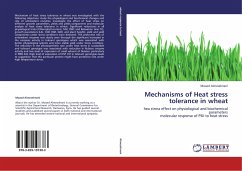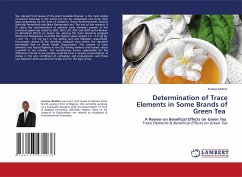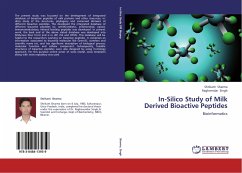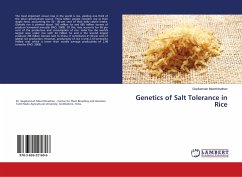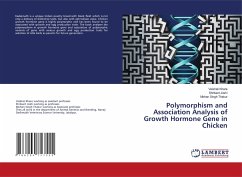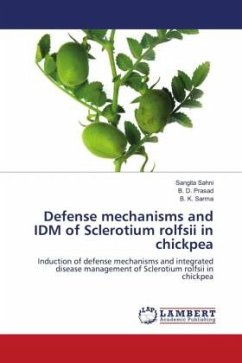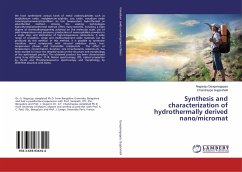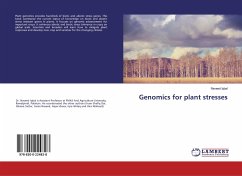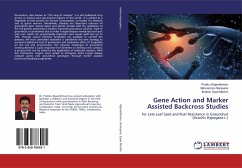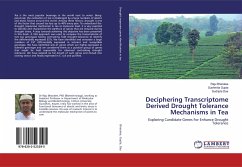
Deciphering Transcriptome Derived Drought Tolerance Mechanisms in Tea
Exploring Candidate Genes For Enhance Drought Tolerance
Versandkostenfrei!
Versandfertig in 6-10 Tagen
61,99 €
inkl. MwSt.

PAYBACK Punkte
31 °P sammeln!
Tea is the most popular beverage in the world next to water. Being perennial, the cultivation of tea is challenged by a large numbers of abiotic and biotic factors around the world. Among these factors, drought is one of the factor that caused tea loss up to 40% every year. To understand the drought responsive mechanism in tea at molecular level, it is very essential to identify and characterize the plethora of genes that are induced during drought stress. A step towards achieving this objective has been presented in this book. A SSH approach was used to compare the transcriptome of two tea ge...
Tea is the most popular beverage in the world next to water. Being perennial, the cultivation of tea is challenged by a large numbers of abiotic and biotic factors around the world. Among these factors, drought is one of the factor that caused tea loss up to 40% every year. To understand the drought responsive mechanism in tea at molecular level, it is very essential to identify and characterize the plethora of genes that are induced during drought stress. A step towards achieving this objective has been presented in this book. A SSH approach was used to compare the transcriptome of two tea genotypes having contrasting field drought tolerance to identify the differentially expressed ESTs. We have identified and annotate a large numbers of EST differentially expressed in tolerant and susceptible genotype. We have identified sets of genes which are highly expressed in tolerant genotype and we considered them as a putative group of genes that might be held responsible for observed contrasting drought tolerance. We have isolated six full length of such genes and cloned into cloning vector and finally expressed in E. coli and purified.



